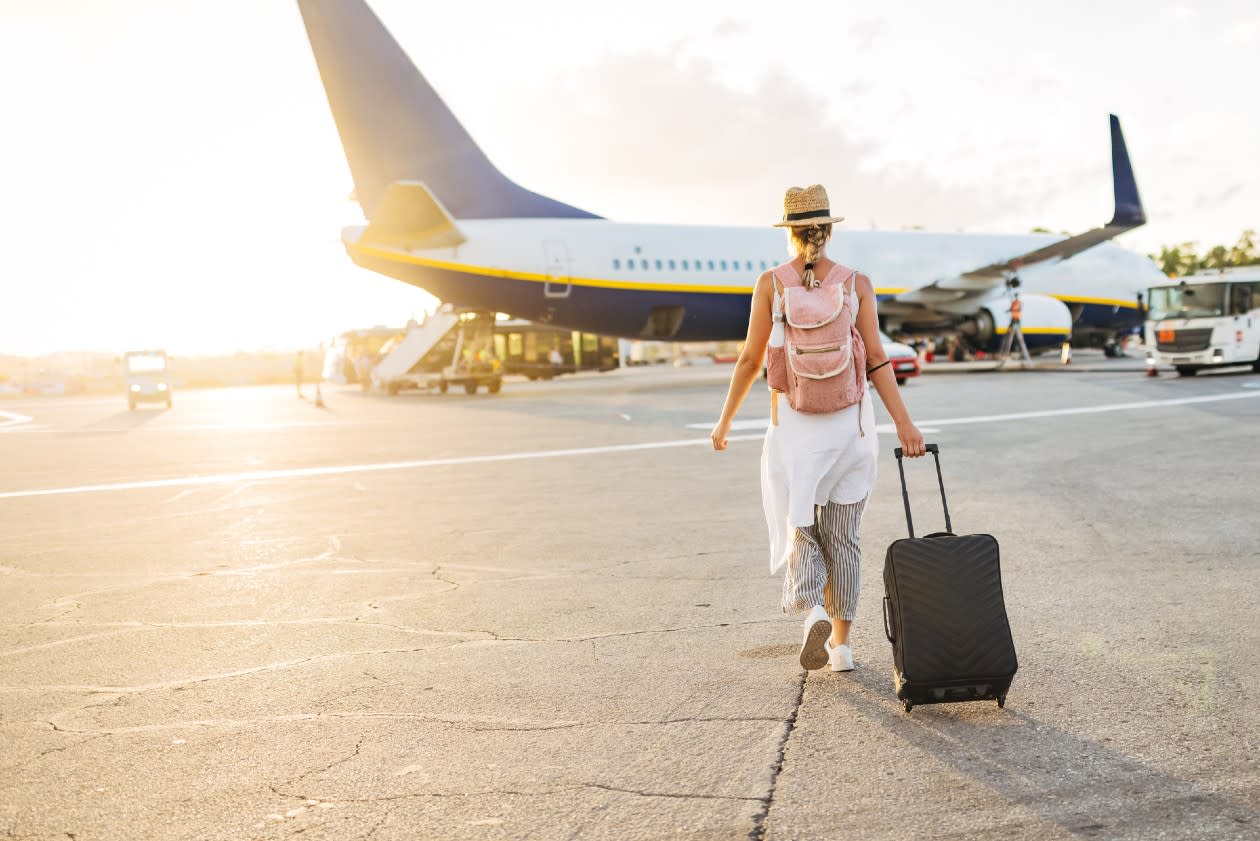Starved of the opportunity to travel during the pandemic, it looks like a lot of holidaymakers have been ring-fencing available budgets for trips abroad. And this is despite a cost-of-living crisis.
Even the spate of delays and cancellations because of strikes and long airport queues didn’t seem to put off travellers from adventuring overseas.
The surge in demand for airline tickets had companies hiking seat prices. And even once they were strapped in and en route, plenty of holidaymakers were happy splashing the cash on in-flight extras, lifting ancillary revenue.
But there are some signs that the positive attitude to rising prices might be starting to fizzle out.
What could this mean for air travel?
Ryanair revealed this year travellers were less likely to take hikes in travel costs on the chin. With another potential rise in prices for seats, demand has eased off.
Simon Calder, our guest on the latest Switch Your Money On podcast and veteran travel journalist noted this too.
‘’Maybe we have now made up for lost sunshine and lost adventures and we’re also getting a bit fed up with the prices being charged.’’
He also said the much hoped for Olympics boost for Paris hasn’t landed and warned other disruption from early summer storms has created extra turbulence for passengers and airlines.
Fresh strikes have also been planned for the summer peak – including at Gatwick airport – which if unresolved, could have a nasty impact on those jetting away for the holidays.
Hopes that snarl ups which caused long queues and travellers to miss flights last year would be solved appears to have been wishful thinking.
New scanners were meant to be in place by 1 June, eliminating the need for liquid security checks and getting much larger quantities taken through. But although they were being installed at checkpoints across the UK’s main airports the work wasn’t fast enough to meet the June deadline. So, it’s been pushed back, even for those few airlines that do have the new kit.
Another major issue for airlines particularly has been the ongoing impact of Boeing – after the incident in January when part of the fuselage blew out mid-flight. A combination of work done within Boeing, and oversight from the regulator has seen a slowdown in production, affecting airline capacity.
The risks of extreme weather are already showing signs of altering our travelling habits. So, there could be less demand for holidays during what’s usually peak seasons.
There are now signs that more tourists are booking trips outside of traditional peak seasons. Booking and transaction data is suggesting there’s been more demand in spring and in September to October, as holidaymakers try and avoid heatwaves and crowds of tourists.
Climate change might also be having an impact on the safety of air travel, and there’s some evidence that it’s leading to more extreme turbulence.
What about other forms of travel?
If you’re expecting the train to take the strain of all this, it could be a long wait. Simon Calder spoke to us about the shocking difference in price between rail travel and air travel. He’s calling for greater competition to help drive these costs down.
With fresh disruption looming this summer, it could benefit domestic tourism. This has been struggling since the shock of COVID-19. Even with the initial rise in demand for staycations, it’s been slow to recover, with not as many tourists from abroad returning compared to other countries. Simon Calder reckons we might soon be tempted to spend more time closer to home again.
Read or listen to our latest full podcast episode below.




